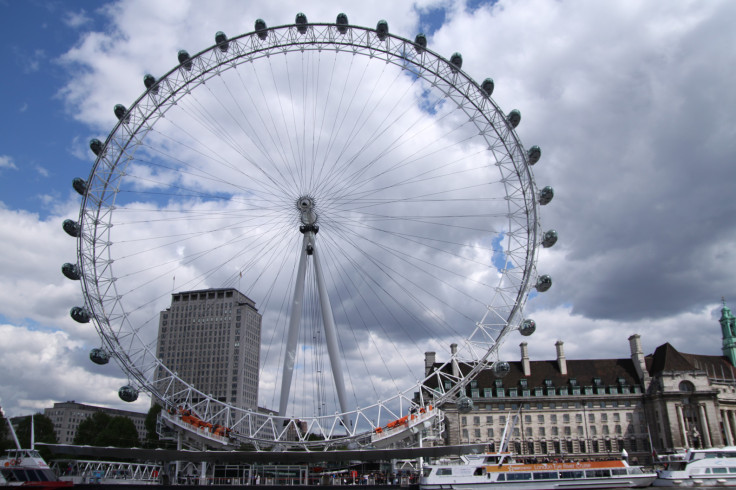Could a weaker pound lead to a flurry of staycations in Britain post-Brexit?
The falling pound could boost UK hotels, camping sites and festivals - weather permitting.
The fall in the value of the pound could lead to a rise in the holidaymakers opting for a UK staycation this summer. Since last month's Brexit vote sterling has hit 31-year lows against the dollar and close to three-year lows against the euro.
In the wake of the EU Referendum vote the pound is roughly 14.5% down against the greenback, and around 11% lower against the euro zone currency.
Currency fluctuations are notoriously hard to predict, but while steep falls among stocks recovered within a few days, the pound stills lags behind a basket of rivals.
For those looking at a foreign holiday this means in the short term everything from a cup of coffee in Paris to a luxury night in the Four Seasons Hotel in New York will cost more.
The sterling-euro rate is key, because Brits take the majority of foreign holidays to the single-currency area; to Spanish beaches, the French Alps, Germany's Black Forest and the Greek islands.
Deloitte, the consultancy, and Abta, the trade body for travel agents and tour operators, released a report earlier this year showing that 76% of holidays taken by Britons were in the euro zone, representing 29.3m trips in 2014.
But even if you never leave Europe, the dollar-pound rate is also significant. Oil is priced in dollars, so a precipitous fall in sterling will push up the price of aviation fuel for airlines such as British Airways and easyJet.
However, travel firms are at great pains to point out that holidays are highly unlikely to rise this year. Abta points out that market leaders such as Thomas Cook and Thomson owner TUI hedged their foreign currencies months ago to soften the impact of fluctuations.
Travel firms have the right to surcharge customers for booked trips in the event of unforeseen circumstances. But few observers expect firms to use this power in a holiday market that is already fragile after repeated terrorist attacks and a UK economy that was showing signs of slowing down before the Brexit vote.
Travel firms have agreed to absorb the first 2% of any increase in costs, and if a surcharge goes above 10% of the cost of the holiday customers have the right to cancel. But the weak state of the holiday market, will act as the greatest bar against holiday firms slapping customers with surcharges.
Wyn Ellis, travel and leisure analyst at broker Numis, said: "Late summer booking is soft, as terrorist attacks, the uncertainties of Brexit and weakening of the economy cause people to tighten their belts. But those looking to go away, may find bargains if the market continues in this way for a few weeks as firms will look to shift unsold holidays off their books."
This weakening market was flagged some months ago by travel giant Thomas Cook. The firm's chief executive Peter Fankhauser warned in May that the firm had suffered from a drop off in holidaymakers to Turkey and lower demand in Belgium due to recent terrorist attacks.
He tightened the firm's annual underlying earnings forecast this year to between £310m ($403m, €364m) and £335m, from earlier estimates of between £310m to £359m.

The firm added that its summer holidays were 63% sold, a 2% fall on a year ago. Fankhauser also pointed out that the shape of the travel business continues to change as customers switch from once-popular resorts in Turkey, Tunisia and Egypt due to increased terror attacks.
Sunseekers are turning to traditional destinations that heralded the advent of mass tourism in the 1960s such as the Canaries, Balearics and the Western Mediterranean.
In the wake of the country's June Brexit poll a Thomas Cook spokesman said: "At this early stage the implications of the UK vote to leave the EU are still unclear. However, our focus remains on running the business as usual." But in this environment British hotels and attractions are moving to get Brits to spend more leisure pounds at home.
Strong growth in restaurants and coffee bars
A Bank of England Summary of Business Conditions report noted in June: "UK holiday companies and visitor attractions reported increasing domestic tourism, in part reflecting perceptions of heightened threats of terrorism overseas and the depreciation of sterling, which had increased
the cost of holidaying abroad. Demand growth was reported to be strong at restaurants and coffee bars."
Nick Varney, the chief executive of Merlin Entertainments, the UK-based operator of Legoland and Madame Tussauds, and the chair of the British Hospitality Association thinks the EU referendum vote is an opportunity for the UK leisure industy.
He said: "Tourism and leisure can continue to grow under Brexit. Initially a weaker pound will encourage visitors and also exports will flourish."
Varney added that industry should seize this moment to push government for a cut to VAT for accommodation, and "possibly in the future also for restaurants".
But perhaps what will finally decide whether the staycation gains ground this summer will be something as undependable as the weather. As Ellis says: "If we have a wet July and August this year, people will do what they usually do in such circumstances. They will find the money and get away."
© Copyright IBTimes 2024. All rights reserved.






